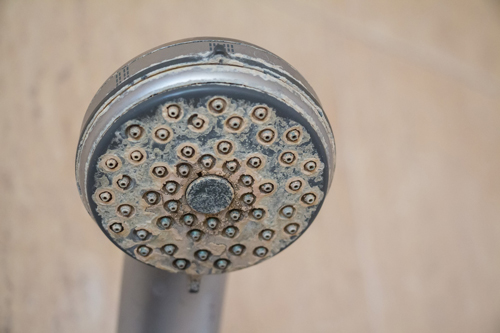Hard water can be a major nuisance for homeowners who want to get the most out of their detergents and appliances and who want to avoid the scum and staining that can occur. While it is not dangerous to your health and only means that there are elevated levels of minerals present in your water, it can do damage in a variety of ways. One of the least discussed side effects of hard water is the harm it can cause to your skin. The minerals can cause skin irritation that manifests itself as a rash, eczema, dryness and more. What should you know about the potential effects of hard water on your skin?
What Is Hard Water?
Before you can address the effects of hard water, you should understand exactly what it is. Hard water is the term used to refer to water that has high levels of minerals like calcium and magnesium. Water that has low levels of minerals is also referred to as soft water. Water becomes hard as it filters through soil that has high mineral levels. Because water is solvent, or able to absorb other things, it can absorb the mineral ions present in these soils. When the water has absorbed a great deal of minerals, the water coming out of your taps can be hard. Some regions of the country and each state have more minerals than others, which is why some regions have hard water and other regions don’t have hard water.
How Do You Know That You Have Hard Water?
Many people realize that they have hard water by noticing the effects of it, like chalky staining on their plumbing fixtures or soap scum on your bathtub. The best way to know whether or not you have hard water is by having testing performed by Atlantic Blue Water Center. We will show you the exact hardness level of your water and give you a measure known as grains per gallon (GPG) to see how high the mineral content is. Ratings between 1-7 GPG indicate moderately hard water and ratings over 10 GPG indicate very hard water. If you’re reading this blog, there’s a good chance that you noticed the effects of hard water firsthand on your skin.

What Can Hard Water Do to Your Skin?
Many people with hard water feel itchy when they get out of the shower even though they should feel clean. That’s because the minerals in hard water make it harder for soap to effectively remove oil, dirt and residue from your skin. The minerals will sit on the surface of your skin and can lead to dry skin and irritation. The minerals from hard water can also lead to rashes and redness, as the calcium can bother sensitive skin and particularly those with existing skin conditions like eczema, dermatitis or rosacea.
When your skin dries out as part of the effects of hard water, it will also dry out the natural oils that keep your skin barrier intact and your skin moisturized. This can cause your skin to overproduce these oils in response, which will eventually clog your pores and can leave you more likely to deal with blemishes and acne.
Many people only think of skin as their face or the skin on their extremities, but your scalp is another area of skin that can experience the effects of hard water. When your skin dries out or becomes irritated, your scalp can itch and start to flake. Furthermore, it can be hard to get rid of the dandruff using treatments and shampoos because the water is mineral-rich and it does not allow your products to lather and clean as well.
Is Soft Water Better for Your Skin?
Yes! Hard water is harsher on skin than soft water, and treating your water with water softening systems is an effective way to lower mineral levels and experience better water quality. Atlantic Blue Water Center can connect you with solutions that address your hardness levels and any other issues that you are noticing with your water supply. You deserve quality water that does not do damage to your home, your skin and your plumbing fixtures. We are here to help you enjoy that!
Make Sure That Your Home Water Supply Is Safe to Drink with Atlantic Blue Water Center
Atlantic Blue Water Center provides water treatment and water softening solutions for homeowners that want a cleaner water supply and water that is free from hazardous carcinogens that can contribute to increased cancer risk. We’re also focused on providing additional education on water treatment, water quality, and issues associated with water contaminants. Call us at (410) 751-9200 to schedule your in-home water testing appointment today.
